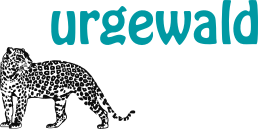Berlin, 17.04.2023
The environmental and human rights organization Urgewald together with 14 NGO partners published a comprehensive update of the AIIB Watch. The website examines the projects of the Asian Infrastructure Investment Bank (henceforth: “AIIB”) for human rights violations, forced resettlement and environmental damage. An interactive map lists a total of 24 cases where the AIIB is failing to meet key protection standards.
"The AIIB's business model is to invest in large infrastructure projects. These include power plants and facilities for natural gas, which will produce greenhouse gas emissions for decades to come, large dams, mining projects," says Dr. Nora Sausmikat, head of the AIIB campaign at Urgewald. "These measures are linked to serious environmental and social risks. A bank that specializes in such risky infrastructure megaprojects needs strong social and environmental safeguards. When they cofounded the AIIB, some European shareholders, like Germany, made it a point to advocate for the best standards – at least on par with those of the World Bank. Seven years on, we are still far from that safeguarding target."
What's New in the Relaunch?
The AIIB Watch was first published in 2021. In the latest update, all information has been revised and updated and new case studies have been added, such as a fast-tracked gas-fired power plant in Bangladesh approved at the end of 2022 [1], a microcredit project in Cambodia [2], a gas-fired power plant in Uzbekistan [3] or the Greater Malé Waste-to-Energy Project in the Maldives. One particular focus of the newly added projects is (forced) resettlement.
The new color scheme of the interactive map distinguishes between approved and proposed projects. Each project description includes key project data in graphical form, such as a project development timeline, the extent of forced resettlement, and detailed information on the relevant safeguarding policies.
Methodology and Use of AIIB-Watch
The case studies are based on information from the AIIB homepage. The case ana-lysis is always based on the applicable safeguarding standards. The initial environmental and social standards adopted by the AIIB in 2016 were revised in February 2019 and again in May 2021. The intention was to reassess and adjust them after three years on the basis of practical experience.
Nevertheless, even after revision, many practical experiences fall outside the standards. Urgewald has critically classified and evaluated the latest standards revision and its current loopholes here. The latest standards took effect in October 2021. The main criticisms of individual fossil projects were critically assessed by Urgewald and partners at the last annual meeting in fall 2022 here. These projects can also be found on the AIIB-Watch map.
About AIIB-Watch
The entire project is coordinated by Urgewald and is based on collaborative work. Many of the summaries are based on case studies conducted by civil society organizations from Asia, Europe and North America and their original sources are linked. The progress of complaints against or improvements/deteriorations around the documented projects is regularly reviewed and documented by NGOs in the field. Research by partner organizations often takes place under high risks. The security situation is so volatile that we cannot present all cases or details of individual cases without putting local communities in danger. Therefore, some investigated cases have remained unmentioned.
About AIIB: A Multilateral Bank with China at the Forefront
The China-initiated Asian Infrastructure Investment Bank (AIIB) began operations in 2016 and quickly emerged as a major player in global finance. Since then, it has approved over 200 projects worth nearly US$ 39 billion. Since its founding, the Bank's membership has nearly doubled to 106 countries, covering almost every continent. This makes it the second largest multilateral development bank (MDB) by membership.
Germany is the fourth largest shareholder, with 4.2 percent of the vote, after China (26.6 percent), India (7.6 percent) and Russia (6 percent). All European shareholders together have a voting share of 22 percent – quite the decision-making power. At the founding of AIIB, Germany provided US$ 900 million of taxpayer money as a deposit and US$ 3.6 billion in guarantees. The participation of Europe's larger economies was essential for the Beijing-dominated AIIB’s international credibility in the capital markets and its triple-A credit rating from global rating agencies. Germany justified its share in the Bank with the argument that it could ensure compliance with particularly high standards. As the AIIB-Watch shows, the standards for mitigating environmental and social risks are far from adequate. It is time for shareholders to use their voting power to change this.
Notes
[1] Unique Meghnaghat IPP Project
[2] PASAC Covid-19 Response Facility Project
[3] Surkhandarya 1.560MW CCGT


